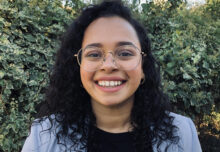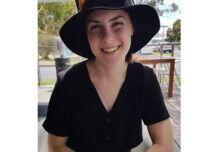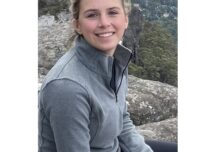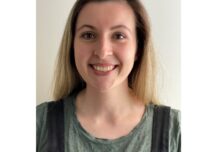1. What is your background (profession/ workplace/ training)?
Jeremy: Currently, I am a fifth and final year medical student in the University of Tasmania with a strong passion for education. In my free time, I enjoy volunteering, bushwalking, playing tennis and the guitar.
2. What inspired you to become a volunteer with The Water Well Project?
3. Please share one of your favourite The Water Well Project sessions or moments.
Jeremy: During one of the sessions aimed at providing healthy eating advice in Launceston, I remembered how intrigued the participants were with the health star rating system and nutrition information panels on the packaging of the food items we brought as props. They were asking question after question and talking about the types of food they typically consume. Having discussed the various nutritional compositions and the consequences of having an imbalanced diet, they were clearly engaged and thinking about how they can apply this new-found knowledge into their daily lives. At the end of the session, they thanked us volunteers for the useful and practical information provided and expressed an appetite for more.
I left the room that day knowing that I have inspired a group of people - despite the language barrier - on how to take charge of their own health and knowing that such upstream interventions will manifest years or even decades down the road as improved health outcomes. It is a different satisfaction altogether when I'm in hospital looking after severely ill patients as compared to these sessions where we try to keep them as healthy as they can be for as long as they can.
 . One participant even commented that she loved the session and learnt something new, and that it was nice to have this opportunity to gather around with friends in a relaxed environment. It's an experience that stuck with me and I still remember it till this day.
. One participant even commented that she loved the session and learnt something new, and that it was nice to have this opportunity to gather around with friends in a relaxed environment. It's an experience that stuck with me and I still remember it till this day.4. What tips do you have for new volunteers?
Jeremy: These sessions are incredibly fun and rewarding. Participants are generally keen on learning and often have many questions regarding the topic of the day. In my experience thus far, participants often have questions that are specific to their situation or health needs. Therefore, I think that it is important to know your limits as a volunteer and not their healthcare provider and to be prepared to have a small spiel should such personal questions arise.
Sean: It's totally normal to feel nervous before your first session, but there'll always be people that can provide support which is really helpful. Do reach out to the education officers, community representatives and other members of the team prior to the session, they're more than happy to answer any questions and provide valuable advice. Apart from that, just have fun! It's a humbling experience and I have really enjoyed my time thus far.





